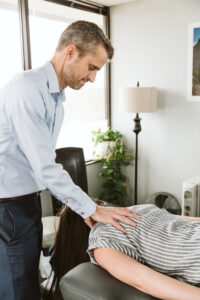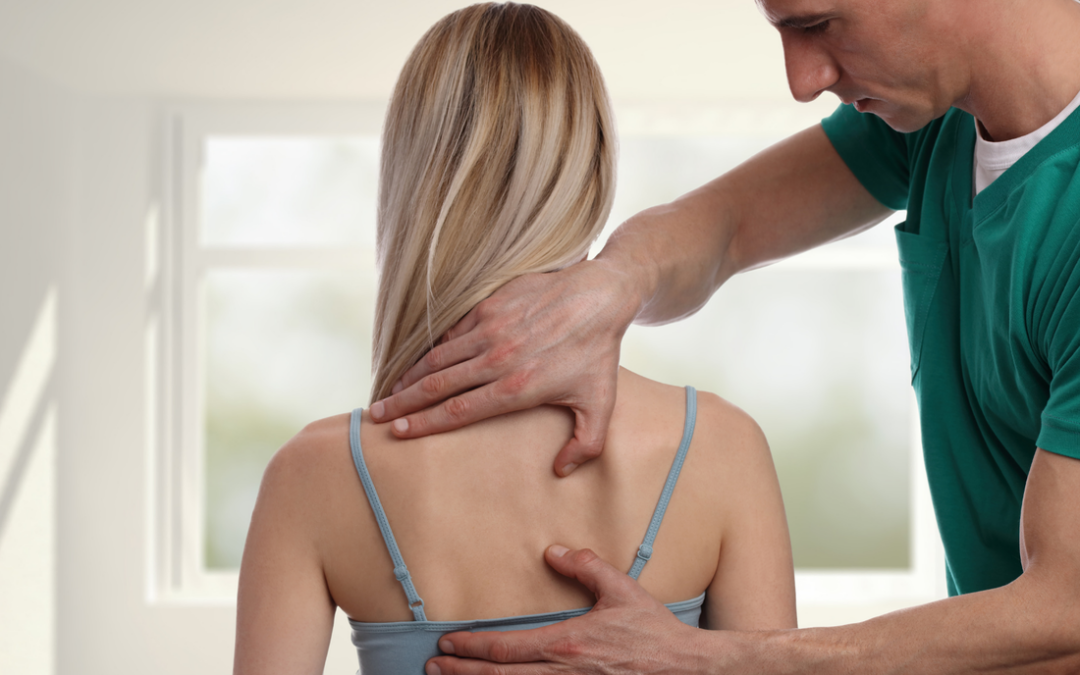If you are experiencing disc herniation, it is essential to seek medical care as soon as possible. Disc herniation, or a slipped disc, is a potentially serious condition that can lead to pain, numbness, and muscle weakness in the affected area. It can be caused by various activities, including lifting heavy objects, twisting the spine, or sustaining a direct blow to the spine. Treatment options may include physical therapy, medications, or surgery, depending on the severity of the herniation. It is essential to consult with a medical professional to determine the best course of action for your situation. So, discuss the matter with your doctor if you’re experiencing pain or discomfort in your neck, back, or lower spine.
Seek Immediate Medical Attention
Disc herniation is a severe medical condition that can cause debilitating pain and other symptoms. If you experience disc herniation symptoms, it is essential to seek immediate medical attention.
Disc herniation occurs when the jelly-like substance that cushions the vertebrae in the spine, known as the nucleus pulposus, breaks through the disc’s outer ring. This can cause the disc to press on the nerves, leading to pain, numbness, tingling, and weakness in the legs or arms. In some cases, the herniation can cause bladder or bowel incontinence.
If you experience any of these symptoms, it is essential to seek medical attention immediately. Your doctor can diagnose your condition and provide the appropriate treatment. Treatment options may include rest, physical therapy, medications, or surgery.
It is important to note that disc herniation can be progressive and lead to more severe complications if left untreated. Therefore, it is best to seek medical attention immediately if experiencing disc herniation symptoms.
Obtain a Doctor’s Recommendation for Surgery
-If you are experiencing pain in your back, neck, or arm, it’s essential to get medical attention.
– If you are experiencing numbness, tingling, or weakness in any arm or hand, you must see a doctor.
– If you experience difficulty breathing, it’s essential to seek medical attention.
– If you experience chest pain or discomfort, it’s essential to seek medical attention.
– If you experience sudden shortness of breath, it’s essential to seek medical attention.
– If you experience sudden changes in vision or hearing, it’s essential to seek medical attention.
– Surgery may be the best option for you if you have a disc herniation that is compressing another disc in your spine.
– Surgery is often the only option for people with severe disc herniation who have not responded to other treatments such as physical therapy and medication.

Maintain regular follow-up visits with your doctor
Maintaining regular follow-up visits with your doctor is vital after you have been diagnosed with disc herniation. These follow-up visits allow your doctor to monitor your progress, review your treatment plan, and adjust it if needed. Your doctor may also be able to identify any potential signs of a recurrence or worsening of your condition that you may not be aware of.
It is important to remember that disc herniation is a condition that can lead to long-term, disabling pain and disability if not managed properly. Therefore, taking an active role in managing your situation is vital by attending follow-up visits, following your doctor’s instructions, and considering any lifestyle changes that may be needed to help reduce your symptoms.
Your doctor will likely give you specific instructions at each follow-up visit, including which activities should be avoided, what medications to take, and what lifestyle and dietary changes may be necessary. Following your doctor’s advice is essential to reduce your symptoms and prevent further issues.
Your doctor may also recommend physical therapy, exercise, and other treatments that can help reduce pain and improve your mobility. These treatments can help reduce your dependence on medications, reduce your risk of further injury, and help you return to your regular activities.
It is essential to keep in mind that your symptoms can change over time, and your doctor may need to adjust your treatment plan accordingly. Therefore, you must keep up with your follow-up visits to ensure that your treatment plan is still effective and that any changes are made as needed.
Rehabilitation Following Surgery
After disc herniation surgery, the first step is to rest and recover. This means limiting physical activity and following the doctor’s orders for pain medication. This will help your body regain physical function and strength.
Rehabilitation can be beneficial for improving physical function, strength, and flexibility following disc herniation surgery. Your physical therapist or rehabilitation specialist will use various rehabilitation techniques, such as physical therapy, occupational therapy, and speech therapy, to help you regain your average level of mobility and functionality. These techniques are designed to help you learn how to use your new abilities and strengths effectively and safely. A speech therapist can also help improve your communication and swallowing skills following disc herniation surgery.
A speech therapist can help you achieve the best possible outcome after disc herniation surgery using tools such as swallow assessments and therapy.
Take Pain Medication as Prescribed
– If pain is severe, take over-the-counter medication as prescribed.
– Take pain medication regularly to minimize the chance of recurrence.
– Rest as much as possible to reduce inflammation and pain.
– Avoid strenuous activity until the pain has subsided.
– Follow up with your doctor if the pain does not improve after a few days of treatment.
– If you experience disc herniation, talk to your doctor about the symptoms and treatment options that are right for you.
There are various treatment options to manage disc herniation and its symptoms. Your doctor can recommend specific pain medications and lifestyle modifications that can help reduce the inflammation in the back, such as exercise and proper posture. You can also consider physical therapy or spinal injections, which may be beneficial in decreasing back pain and improving muscle tone.
Follow all Doctor’s Orders
-If you experience pain in your shoulder, arm, or hand, immediately seek medical attention.
-Only move the injured area once the doctor gives you the all-clear.
-Keep the injured area as still as possible to reduce pain and swelling.
-Rest the injured area as much as possible to allow the injury to heal correctly.
-Avoid lifting heavy objects or engaging in strenuous activity until the injury has healed.
This will help ensure that the injury heals without causing any long-term damage or causing pain and numbness to persist. In addition, follow the doctor’s orders regarding any pain medication they may prescribe for you. This will help ensure that you can fully recover from your shoulder disc herniation without any complications or side effects.
What Causes disc herniation?
Disc herniation is a medical condition that occurs when the central portion of a spinal disc bulges out of its normal position and puts pressure on the nerve roots or spinal cord. It is a common cause of low back pain and sciatica. The most common cause of disc herniation is the natural aging process, which causes the discs to lose their flexibility and cushioning. Other causes of disc herniation include trauma or injury, obesity, smoking, and activities that put extra strain on the back, such as heavy lifting or repetitive motions.
Disc herniation can also be caused by degenerative disc disease, in which the discs between the vertebrae break down due to wear and tear. This can cause the discs to become brittle and weak, making them more likely to herniate. Other causes of disc herniation include bone spurs, tumors, and infections. In some cases, there is no known cause of the herniation.
The most common symptom of disc herniation is pain in the lower back or leg, depending on which nerve root is compressed. Other symptoms can include numbness and tingling, weakness, and loss of sensation. Treatment for disc herniation depends on the severity of the condition and the associated symptoms. Treatment options may include physical therapy, medications, and, in some cases, surgery.
Symptoms of disc herniation
Disc herniation, also known as a slipped disc, is a medical condition in which a protrusion of the intervertebral disc material is experienced. This occurs when the disc’s outer layer is damaged, allowing the inner layer to bulge outwards. There are various symptoms of disc herniation, and they include:
- Back pain: is the most common symptom of disc herniation. Pain in the lower, middle or upper back can range from mild to severe.
- Numbness or tingling: Disc herniation can cause numbness or itch in the affected area and the legs, feet, or arms.
- Muscle spasms: Muscle spasms may be experienced in the affected area due to the pressure of the herniated disc on the nerves.
- Weakness: A person with disc herniation may experience weakness in the affected area, legs, feet, or arms.
- Difficulty walking: Difficulty walking can also be experienced due to pain and numbness in the legs.
- Loss of bladder control: In some cases, disc herniation can cause loss of bladder control due to the pressure it puts on the nerves.
Disc herniation can be very painful and significantly impact a person’s quality of life. It is essential to seek medical attention if you experience any of the above symptoms, as treatments available can help reduce the pain and improve mobility.
Conclusion
Disc herniation or herniated disc occurs when the nucleus pulposus of the disc bulges through the annulus fibrosis. It’s a joint herniated disc degeneration that can occur at any age, though it is most prevalent in older adults. The pain associated with disc herniation varies from person to person and can be mild to severe.
Integrative Chiropractic in Overland Park is an excellent resource for disc herniation patients. Using chiropractic care, corrective exercises, and lifestyle modifications, Integrative Chiropractic can help reduce pain and improve the quality of life for those with disc herniation. If you are suffering from disc herniation, Integrative Chiropractic in Overland Park is a possible treatment option.

